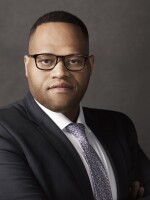When I approached our Chief Content Officer back in November asking him if we could go to Norway to follow a group of Connecticut policymakers and thought leaders who were learning about Norwegian corrections, I thought for sure the answer would be no. Much to my surprise, the answer was a resounding yes. That led to an hour-long Cutline documentary, a radio series and a panel discussion and screening of the documentary.
It was truly an amazing experience to learn about how Norwegians treat corrections. For them, the punishment is being in prison. Once you begin serving your sentence, the goal is rehabilitation. Even drug treatment is optional. When it comes to youth, Norwegians spare no expense. We toured the youth facility which looked like a modern-day Airbnb and learned that, at that time, there were only three youths involved in the country’s justice system. (The country has more than 1.2 million people aged 19 or younger.) We also learned a lot about Connecticut’s justice system and the reforms the state Department of Correction has already implemented.

It truly was an enlightening experience. It also taught me about how the work we produce as journalists can set the tone. For example, our team had to discuss whether we would use the term “inmate” and if we would include the conviction information of the incarcerated individuals we interviewed. We quickly came to the conclusion that we do our best to avoid that word and we would include that information.
We hope that our work is just the beginning — that we can have more conversations about topics like this that not only inform the public but teach us as journalists as well.
Related Reading:
Governor Newsom wants to transform San Quentin using a Scandinavian model (Los Angeles Times)
CT lawmakers formerly aim to help formerly incarcerated gets IDs, fresh start (CT Mirror)
What Words We Use — and Avoid — When Covering People and Incarceration (The Marshall Project)


